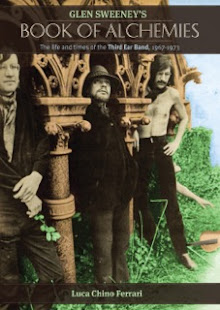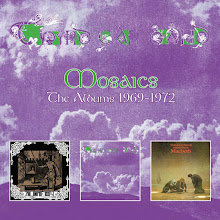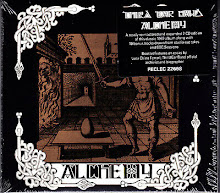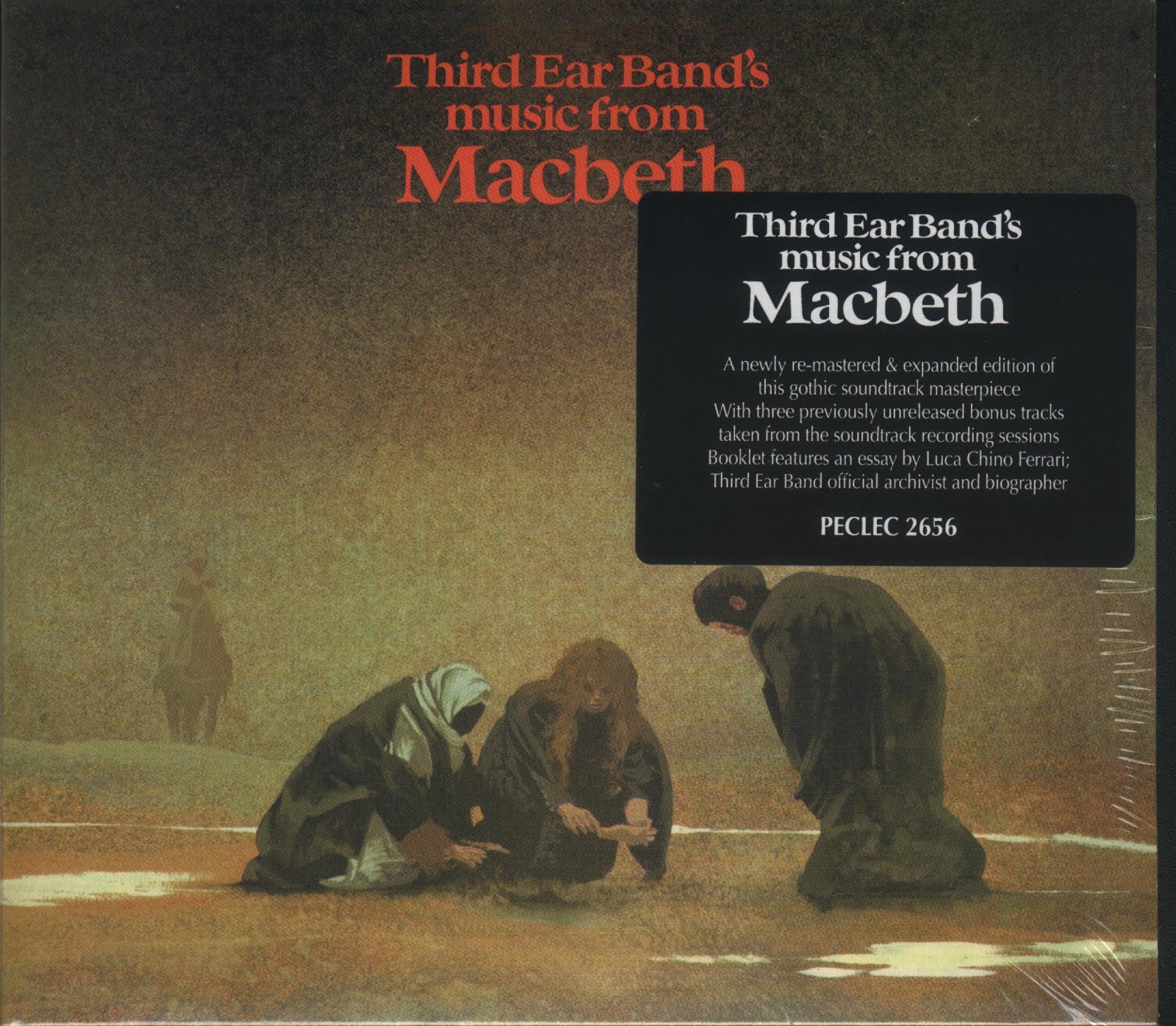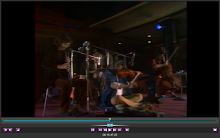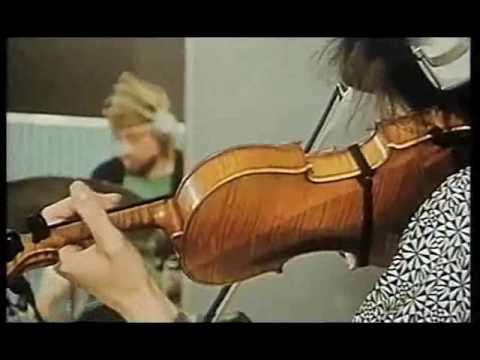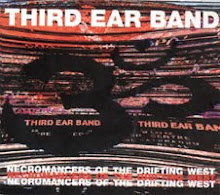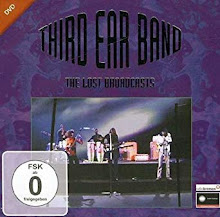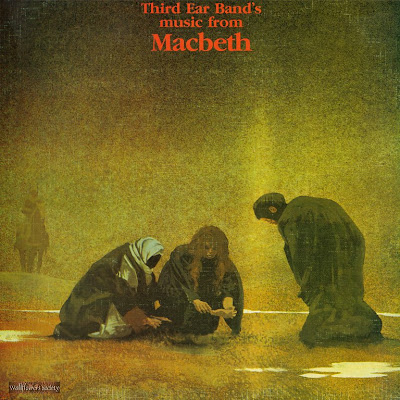February 26, 2019
Soon on Prog magazine a piece on the TEB's reissues by Malcom Dome.
English journalist Malcolm Dome is writing a piece on the Third Ear Band's reissues for Prog magazine.
He's contacting Denim Bridges and Ursula Smith for having an interview...
no©2019 Luca Chino Ferrari (unless you intend to make a profit. In which case, ask first)
February 22, 2019
Other reviews on the TEB on the Web...
Here's below some other reviews about TEB's remastered editions found in the Web:
The Reprobate: "Polanski’s Macbeth And The Third Ear Band’s Dark Folk Soundtrack" by Daz Lawrence at https://reprobatepress.com/2019/01/21/polanskis-macbeth-and-the-third-ear-bands-dark-folk-soundtrack/
Music Street Journal: a review about "Elements 1970-1971" by Gary Hill at http://www.musicstreetjournal.com/index_cdreviews_display.cfm?id=106634
Rythmes Croises Webzine: a review about "Elements" and "Macbeth" (in French) at https://www.rythmes-croises.org/remasterisations-esoteriques-pour-third-ear-band/
Please note another very interesting old article about Polanski's "Macbeth" and the Third Ear Band:
The Criterion Collection: "Third Ear Band's psychedelic alchemy in Macbeth" by Glen Kenny (2014) at https://www.criterion.com/current/posts/3387-third-ear-band-s-psychedelic-alchemy-in-macbeth
no©2019 Luca Chino Ferrari (unless you intend to make a profit. In which case, ask first)
Rythmes Croises Webzine: a review about "Elements" and "Macbeth" (in French) at https://www.rythmes-croises.org/remasterisations-esoteriques-pour-third-ear-band/
Please note another very interesting old article about Polanski's "Macbeth" and the Third Ear Band:
The Criterion Collection: "Third Ear Band's psychedelic alchemy in Macbeth" by Glen Kenny (2014) at https://www.criterion.com/current/posts/3387-third-ear-band-s-psychedelic-alchemy-in-macbeth
no©2019 Luca Chino Ferrari (unless you intend to make a profit. In which case, ask first)
February 14, 2019
Denny Bridges about the three unrealised "Macbeth" tracks.
News from our friend Denny Bridges, the guitar player of TEB on "Macbeth" and for "The Dragon Wakes" sessions, now coming back to live in Somerset, England.
Discussing again the idea to release the unrealised tracks recorded at Balham in February 1971, he writes to me about the three unrealised tracks the TEB recorded at the Trident Studios on December 5th, 1970, months before the beginning of the recordings at the Air Studios for the Polanski's soundtrack.
"The tracks "Court Dance", "Groom's Dance" and "Fleance" needed to be recorded in advance of the filming of Macbeth. The dances needed to be choreographed and taught to the actors. Also, the role of Fleance was decided, at least in part, by how well the boy sang the song. Well done young Keith Chegwin!
 A departure from the way TEB functioned of course; the song I wrote and I presented the defined melody and chords to the band so that was all set in stone. Its not surprising that all and any takes of the song sound the same although probably, after some run-throughs, there was just the one take. As for the dances, in advance of the recording date, we improvised at the rehearsal studio in Balham until we came up with a framework that fitted the description of the dances. We then went into the studio and, as per usual, improvised the pieces afresh using the framework we had from the rehearsals until we got the best take. So that's what the Trident recordings probably are - us trying different approaches. All three pieces are used in the movie and on the album."
A departure from the way TEB functioned of course; the song I wrote and I presented the defined melody and chords to the band so that was all set in stone. Its not surprising that all and any takes of the song sound the same although probably, after some run-throughs, there was just the one take. As for the dances, in advance of the recording date, we improvised at the rehearsal studio in Balham until we came up with a framework that fitted the description of the dances. We then went into the studio and, as per usual, improvised the pieces afresh using the framework we had from the rehearsals until we got the best take. So that's what the Trident recordings probably are - us trying different approaches. All three pieces are used in the movie and on the album."
 A departure from the way TEB functioned of course; the song I wrote and I presented the defined melody and chords to the band so that was all set in stone. Its not surprising that all and any takes of the song sound the same although probably, after some run-throughs, there was just the one take. As for the dances, in advance of the recording date, we improvised at the rehearsal studio in Balham until we came up with a framework that fitted the description of the dances. We then went into the studio and, as per usual, improvised the pieces afresh using the framework we had from the rehearsals until we got the best take. So that's what the Trident recordings probably are - us trying different approaches. All three pieces are used in the movie and on the album."
A departure from the way TEB functioned of course; the song I wrote and I presented the defined melody and chords to the band so that was all set in stone. Its not surprising that all and any takes of the song sound the same although probably, after some run-throughs, there was just the one take. As for the dances, in advance of the recording date, we improvised at the rehearsal studio in Balham until we came up with a framework that fitted the description of the dances. We then went into the studio and, as per usual, improvised the pieces afresh using the framework we had from the rehearsals until we got the best take. So that's what the Trident recordings probably are - us trying different approaches. All three pieces are used in the movie and on the album."no©2019 Luca Chino Ferrari (unless you intend to make a profit. In which case, ask first)
February 11, 2019
A Grapefruit 3CDs folk anthology with TEB's "Fleance".
On March 29th, 2019 a 3CDs anthology boxset of British folk will be published by Cherry Red records/Grapefruit. Titled "STRANGERS IN THE ROOM ~ A JOURNEY THROUGH THE BRITISH FOLK ROCK SCENE 1967-73", a pre-order is available at the label Website here.
Among great musicians and bands as Michael Chapman, Pentangle, Trees, Fairport Convention, Steeleye Span, Dando Shaft, C.O.B., Strawbs, Heron, Bridget St. John, on disc 2 also the Third Ear Band with "Fleance".
Here's the press release: "It's now half-a-century since British folk rock became A Thing, with the early practitioners breaking new ground and inspiring an entire scene that peaked in the late Sixties/early Seventies.
Earnest young post-Dylan singer/songwriters moved away from the intimacy of the folk clubs in favour of the nascent college/university circuit. Countercultural iconoclasts The Incredible String Band became a seismic influence on a whole raft of bands now categorised as acid-folk, Pentangle's use of acoustic instrumentation within a nominally rock framework attracted many emulators (though arguably no real equals), while Fairport Convention graduated from their initial American West Coast-indebted sound to explore their own country's musical heritage, thus establishing the concept of indigenous English folk rock (a baton that would be picked up by the likes of Ashley Hutchings' post-Fairport venture Steeleye Span and many others).
By the early Seventies, British folk rock had become an extremely marketable commodity. In addition to the aforementioned brand leaders transcending the determinedly parochial folk pages of the UK music weeklies to score Top Ten albums, a second raft of acts - including Alan Hull's Lindisfarne, The Strawbs, the post-Humblebums Gerry Rafferty, Ralph McTell and another Fairport refugee, Iain Matthews - registered huge hit singles.
Housed in a clamshell box featuring a lavish forty-page booklet, Strangers In The Room documents that hugely fertile period, when everything was grist to the mill in what quickly became a glorious stylistic melting pot. As with other Grapefruit genre anthologies, the set features many of the scene's prime movers while taking a broader look at the overall picture with the inclusion of several acts who ploughed a similar musical furrow without the same level of acclaim. These include Hertfordshire-based group Lifeblud, who supported many of the leading bands of the era and recorded no less than three albums of original material (none of which made it past acetate stage), and university student Jeremy Harmer, who cut a privately-pressed album that inspired his friend and second guitarist David Costa to put together Trees.
Ranging in scope from seminal UK folk rock texts and chart-topping singles to lo-fi demo recordings, and featuring a number of previously unreleased tracks from the disparate likes of Gerry Rafferty and cult favourites Fresh Maggots, Strangers In The Room pays thrilling testimony to the depth of talent that existed within the British and Irish folk rock scene during the period in question, and whose influence still reverberates some fifty years later."
no©2019 Luca Chino Ferrari (unless you intend to make a profit. In which case, ask first)
Ranging in scope from seminal UK folk rock texts and chart-topping singles to lo-fi demo recordings, and featuring a number of previously unreleased tracks from the disparate likes of Gerry Rafferty and cult favourites Fresh Maggots, Strangers In The Room pays thrilling testimony to the depth of talent that existed within the British and Irish folk rock scene during the period in question, and whose influence still reverberates some fifty years later."
no©2019 Luca Chino Ferrari (unless you intend to make a profit. In which case, ask first)
February 08, 2019
Steve Pank about the "Alchemy" days...
Some weeks ago I asked Carolyn and Steve to tell me something more about the "Alchemy" sessions for the Esoteric CD booklet I was writing. This is what Steve, former promoter and driver of the band, wrote me:
"The first Third Ear Band was trio, with Ben Cartland, [viola] Paul Minns [oboe] and Glen [hand drums]. Ben Cartland played in a raga style using his G string as the drone. This piece originally called the G Raga, later was called the Ghetto Raga. By the time the group signed with Blackhill Agency, it was a quartet with Richard Coff added on violin. They were the house band at weekly sessions at All Saints Hall, They also played a regular Saturday night residency at the Covent Garden Arts lab. On 18th December 1968 they played in the Royal Albert Hall for the Arts Lab organised ‘Alchemical Wedding’ . The recording sessions for Alchemy were in March and April of 1969.The mood at the recording sessions was - that this was what we have been building up to from the live performances, It was a completion as well as a beginning.
"By the end of 1968, Ben had left and been replaced by Mel Davis For the album the band really needed a cellist, and Mel arrived at the right time. Mel Davis’ previous experience was with playing piano with the free jazz and performance art group, ‘The People Band’, and he had taken up cello. In terms of technique, he was not a great player but with his experience in free jazz and in musical education, he as able to add bass drones and riffs which extended the range of mood of the pieces. He was an influential member of the band, and his work is evident on the album.
"On the track ‘Dragon lines’ Mel plays the Slide Pipes which I remember looked like a set of ‘Hoover tubes’, but they sound like a dragon’s breath! The track was recorded in one take, and when he dropped part of the instrument, he let out a whoop as he picked it up. Paul Minns had studied the oboe and the harpsichord, and his experience of playing baroque music, influenced his style. Paul is the only player who has been able to make the oboe sound like that.
"At the time the album was recorded. Paul had a part time job doing layout for a publisher. The first band that Glen was in was in the 1950s, He was the drummer in a skiffle group called the Anacondas, who although they never recorded, were well known and successful. After that, Glen moved into playing jazz. His first attempt at forming a band was a free jazz and poetry group called Sounds Nova. It was though this group that Glen met saxophone player Dave Tomlin. Like Mel, Dave Tomlin had extended his playing to performance art, which is combining music with acting. Dave and Glen once mounted the bandstand in Kensington Gardens and then started to play. Their show was the confrontation with the park keeper!
"After Dave left the Mike Taylor Quartet, he was squatting in the basement of the London Free School and on Saturday mornings he would march down Portobello Road playing his tenor saxophone followed by a crowd of kids. After being cautioned and harassed by the police, he thought, maybe it is the saxophone that is causing the problem, and so he decided to take up the violin instead He composed a number of folk style tunes, Glen asked for him to be brought to the studio toward the end of the recording sessions. That is when he recorded Lark Rise.
Richard Coff came from Miami but had studied classical violin in Boston. He had won a distinction for his composition. He was interested in Minimalism, a style of modern composition based on simple repeated motifs, This influence is reflected in the piece ‘Mosaic’
The esoteric images projected by the band reflected Glen’s interest in natural philosophy. He would describe the drone as an Om, and the drumbeat as the heartbeat. He had been to Egypt and seen the pyramids and temples. Glen’s approach was to go with whatever was happening If he needed a musician, and someone came along who wanted to play and who sounded good, he would invite them to play in their own way. The scene was starting to wake up to world music. The influence of Celtic, Indian, free, contemporary, all came together and expressed as an emotional force that became ‘Alchemy’."
no©2019 Luca Chino Ferrari (unless you intend to make a profit. In which case, ask first)
 |
| Steve Pank |
 |
| The People Band in the Sixties |
"On the track ‘Dragon lines’ Mel plays the Slide Pipes which I remember looked like a set of ‘Hoover tubes’, but they sound like a dragon’s breath! The track was recorded in one take, and when he dropped part of the instrument, he let out a whoop as he picked it up. Paul Minns had studied the oboe and the harpsichord, and his experience of playing baroque music, influenced his style. Paul is the only player who has been able to make the oboe sound like that.
 |
| TEB in 1968: (L-R) Minns, Cartland, Sweeney, Coff. |
"At the time the album was recorded. Paul had a part time job doing layout for a publisher. The first band that Glen was in was in the 1950s, He was the drummer in a skiffle group called the Anacondas, who although they never recorded, were well known and successful. After that, Glen moved into playing jazz. His first attempt at forming a band was a free jazz and poetry group called Sounds Nova. It was though this group that Glen met saxophone player Dave Tomlin. Like Mel, Dave Tomlin had extended his playing to performance art, which is combining music with acting. Dave and Glen once mounted the bandstand in Kensington Gardens and then started to play. Their show was the confrontation with the park keeper!
 |
| Steve Pank |
Richard Coff came from Miami but had studied classical violin in Boston. He had won a distinction for his composition. He was interested in Minimalism, a style of modern composition based on simple repeated motifs, This influence is reflected in the piece ‘Mosaic’
The esoteric images projected by the band reflected Glen’s interest in natural philosophy. He would describe the drone as an Om, and the drumbeat as the heartbeat. He had been to Egypt and seen the pyramids and temples. Glen’s approach was to go with whatever was happening If he needed a musician, and someone came along who wanted to play and who sounded good, he would invite them to play in their own way. The scene was starting to wake up to world music. The influence of Celtic, Indian, free, contemporary, all came together and expressed as an emotional force that became ‘Alchemy’."
no©2019 Luca Chino Ferrari (unless you intend to make a profit. In which case, ask first)
February 04, 2019
"Alchemy" remastered edition updated.
First of all, the 2CDs-disc set will be out on March 29th, 2019 with the usual pre-order at the Esoteric Recordings and Cherry Red Records' Websites (go HERE). Maybe a special edition also in vinyl could be released!
About the track-list, "due to issues with the BBC", the updated tracks will be these:
CD One
“Alchemy”*
Mosaic
Ghetto Raga
Druid One
Stone Circle
Egyptian Book of the Dead
Area Three
Dragon Lines
Lark Rise
(Released as Harvest SHVL 756 in July 1969)
Bonus tracks**
Hyde Park Raga
Druid One
(BBC Radio One “Top Gear” session – 27th July 1969)
Previously unreleased
*= remastered from original EMI masters.
**= actually the tracks are available among TEB fans.
CD Two
Cosmic Trip*
Jason’s Trip*
Devil’s Weed*
Raga n. 1 (mono)**
(Recordings made in 1968)
Unity
(Recorded at Abbey Road studios – 24th January 1969)
Previously unreleased
The Sea
Druid
Hyde Park Raga
(Recorded at Abbey Road studios – 12th September 1969)
Previously unreleased
*= same tracks published in "Necromancers of the Drifting West" by Gonzo Multimedia in 2015.
**= same track as "Raga in D", just in studio master quality.
For writing the CD booklet I had the opportunity to listen to the four unrealised tracks before, and, well, I have to admit they was a great surprise for me!
no©2019 Luca Chino Ferrari (unless you intend to make a profit. In which case, ask first)
Tags:
Alchemy,
BBC,
Cherry Red Records,
Esoteric Recordings
February 01, 2019
"Uncut" Magazine reviews TEB's reissues: a clear example of arrogance in Rock magazines...
...apart ignoring Ghettoraga Archive and the author of the CD booklets' notes (the usual old British chauvinism), the four pages article is based on some memories by Blackhill's manager Andrew King, the man who never trusted in the TEB...
...apart minimizing the band's reunion in Italy in the Eighties that was a sort of artistic renaissance for Glen Sweeney and Paul Minns...
...apart quoting for two times Mike Marchant instead Denim Bridges, confusing records and phases of the TEB's story;
Pinnock does this arguable assertion, to say the least: "Today, the majority of the group many members have died - (...) - and the story of the band, their beliefs and working practices, remains something of a mystery...".
The fact that he ignores all the huge work made on this pages (more than 400 files published here!) is quite emblematic of the arrogance some Rock journalists have: since he doesn't know the existence of the Archive (quoted in both CD booklets) and all the stuff published he can assert that the story of the band is still a "mystery".
Of course is a mystery just for him...!
Subscribe to:
Posts (Atom)











